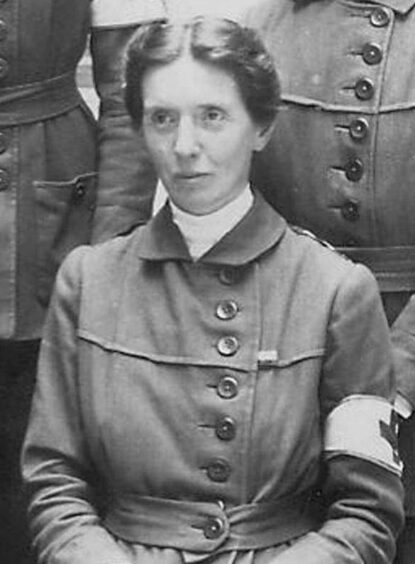
BP has announced it will name its first floating offshore wind demonstration project in Aberdeen after Scottish medical pioneer and suffragette Dr Flora Murray.
BP made the announcement at the Floating Offshore Wind 2023 conference currently being held at the P&J Live in Aberdeen on October 4th and 5th.
Named Flora, the offshore wind project is being developed after BP made a successful application to Crown Estate Scotland’s innovation and targeted oil and gas (INTOG) leasing round earlier this year.
BP submit a bid with bid with £1.6m option fees for a 50MW capacity project as part of the innovation category.
Aberdeen Green Hydrogen Hub
The Flora project could potentially be integrated with the company’s planned Green Hydrogen Hub, a joint project with Aberdeen City Council.
BP project director for the Flora project Adele Brownlie said took to social media to share her excitement to be able to pay tribute to Dr Flora Murray.
“This is a very exciting first step, as BP looks to build our offshore wind footprint around the world, which we expect to include more floating options,” Ms Brownlie said.
“Having grown up in Aberdeenshire, I’m really excited about leading a local project and looking forward to seeing Flora’s potential as a contributor to an integrated energy system in the area.
“Over 100 local suppliers have already signed up to work with BP on the project and potential power from Flora may be integrated into the Aberdeen Hydrogen Hub, which BP is developing in partnership with Aberdeen City Council.”
Tribute for pioneering leader
Born in Dalton in 1869, Flora Murray was a Scottish medical pioneer and an active participant in the suffragette movement.
Together with her partner, Dr Louisa Garrett Anderson, she established the Women’s Hospital for children providing healthcare for working class children.
In April 2022, a portrait of Dr Murray was included on the new polymer £100 banknote issued by the Bank of Scotland in honour of her work in medicine and championing women’s rights.
After Dr Murray was included on the Scottish £100 note, Royal Free London NHS Foundation Trust chief executive Caroline Clarke praised her impact on British medical history.
“Almost a century since her death, Flora’s story is a reminder of the huge debt of gratitude we owe to those early agitators who refused to accept the limitations imposed by a society that didn’t believe women could or should be doctors, physicians and surgeons,” Ms Clarke said.
Recommended for you


 © Supplied by PubMed Central
© Supplied by PubMed Central